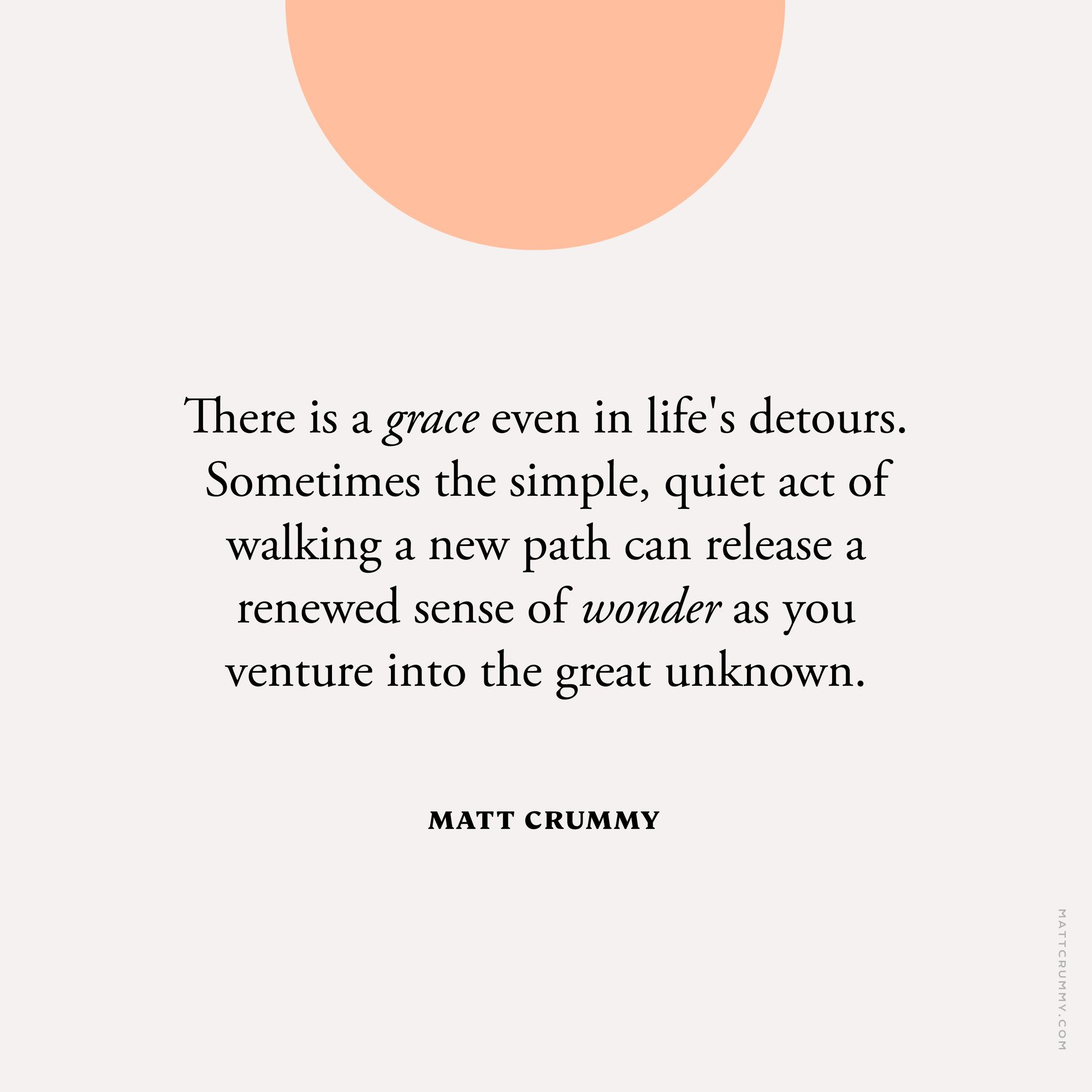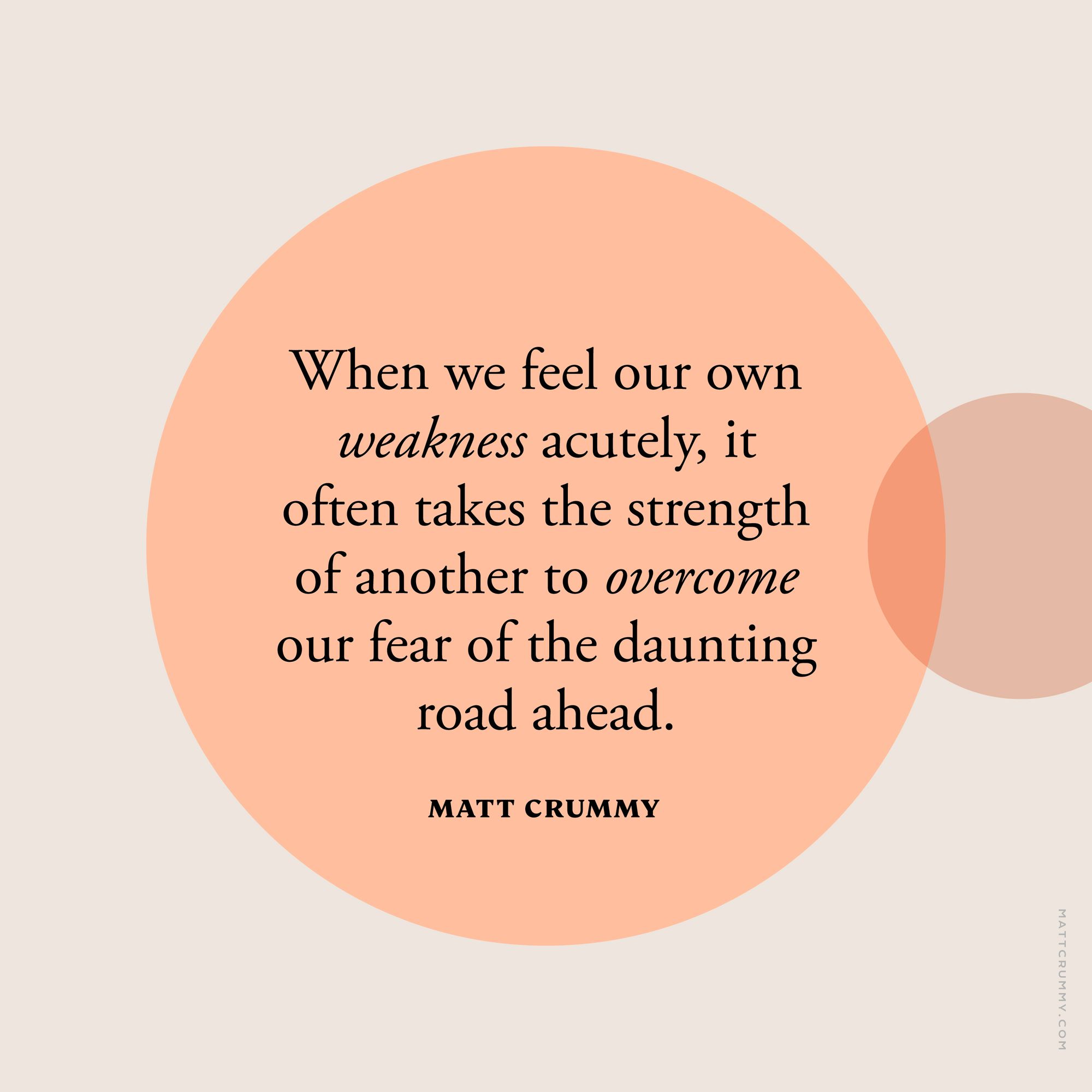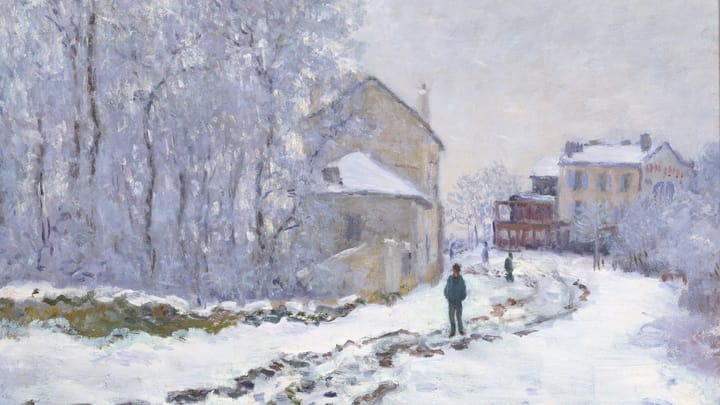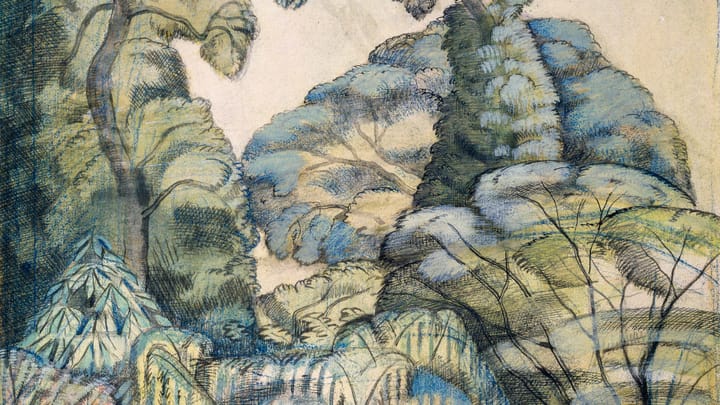On a blustery Des Moines afternoon, I noticed two women walking along a quiet side street in our neighborhood. The older of the two appeared to be struggling awkwardly with new crutches. She stumbled and stabbed and danced with the precariousness of a newborn fawn as she stammered forward. Her walking buddy seemed to be there for support—one-part moral and two-parts structural—as they shuffled arm-in-arm. And just as I was nearly past this scene out of a Pixar movie, the older woman had to sneeze. We’re talking a hearty Midwestern mouth derecho. The ensuing acrobatic act of attempting to cover her sneeze while maintaining balance atop two teetering aluminum sticks just about sent the poor woman crashing to the ground. But by some anti-gravity miracle she recovered and they continued down the sidewalk at a snail’s pace. As I made my way back toward our house, I couldn’t shake the image of her balancing act in my mind.
Consent
Sometimes we find ourselves in need of assistance. Perhaps a lot of it. Maybe your injuries are more relational or psychological than crutchy. You are off-balance and relegated to the side streets of life. These times can be flat-out disheartening and lonely. As your body gains strength and remembers how to walk, you are also reminded of your weaknesses, pain, and the frustrating limits of your own power to heal yourself. This is especially true with our minds. After all, the therapeutic is often more about remembering than forgetting. You are in the in-between. This is where the wobbly sidewalk woman is today. In a sense, this is where we all are in one way or another.
One liberating paradigm that underlies true recovery is what animates the injured woman’s ongoing physical therapy process—each step is her choice. This is a crucial component of healing. You need to consent in order to learn how to walk again. And whether your injuries are permanent or temporary, the price of your progress comes with a consent-to-remember clause. Consider how Jesus speaks to a man with disabilities in Jerusalem:
One man was there who had been disabled for thirty-eight years. When Jesus saw him lying there and realized he had already been there a long time, he said to him, “Do you want to get well?”
“Sir,” the disabled man answered, “I have no one to put me into the pool when the water is stirred up, but while I’m coming, someone goes down ahead of me.”
“Get up,” Jesus told him, “pick up your mat and walk.” Instantly the man got well, picked up his mat, and started to walk.
John 5:5-9
This is all well and good. In fact, it's incredible. The man is miraculously healed! And yet, his memory remains. He has accumulated nearly four decades of mockery, disappointment, and immobility. His legs now remember but so does his heart. And despite all the potential risks associated with opening himself up to Jesus, he does so simply and beautifully. Thankfully, there is deep healing and nourishment when we consent to the Spirit of the living God. Jesus responds as one who loves to heal those experiencing abandonment.
Memory
Healing isn’t as simple as time plus effort. There are social dynamics to our injuries. For instance, if the injured woman along the sidewalk had been all alone, perhaps she might not have felt the social pressure to cover her sneeze and move her arms out dangerously from above her wobbly crutches. And therein lies a point I’m attempting to raise with the story of these two women. When we are hurt, our habitual reactions to life’s troubles may actually further injure us or others because we forget or ignore our own limitations. Hatred of our inabilities can spiral into hatred of ourselves. Our old ways of living taunt us from around every corner and yet stay steadily beyond our grasp like the Cheshire Cat. And while we know things may get better, we begin to believe that our new normal has somehow fundamentally changed our value or diminished who we can become. Our weakness creeps into the mirror of our identity.
What is also true about the woman on crutches is that she likely wouldn’t have been on a walk without her friend in the first place. Her companion cannot fix her leg, but she can be there for her. When we feel our own weakness acutely, it often takes the strength of another to overcome our fear of the daunting road ahead.
We need not fear embracing the uncertainty caused by injury—living fully along the unfamiliar terrain of a new mountain trail. This too is the stuff of God's kingdom. You may find yourself seeing life from an entirely new vista and it just may be surprising how enriching it is in its pace. There is a grace even in life's detours. Sometimes the simple, quiet act of walking a new path can release a renewed sense of wonder as you venture into the great unknown.








Comments ()